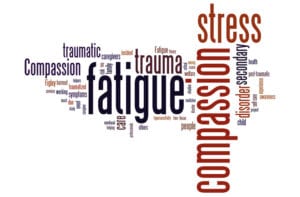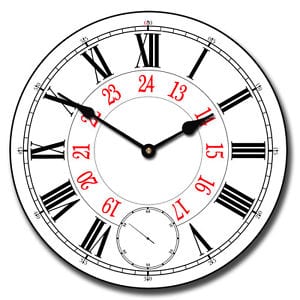 Research has shown that fatigue can impact situational awareness in disturbing ways. [tweet this] Some responders think if they take a “safety nap” it will help. In a small way, it may, as any rest is better than no rest. However, a nap does not resolve systemic fatigue. Rest is a critical component to brain function and when there is not adequate rest or disrupted sleep, the impact is real, and measurable.
Research has shown that fatigue can impact situational awareness in disturbing ways. [tweet this] Some responders think if they take a “safety nap” it will help. In a small way, it may, as any rest is better than no rest. However, a nap does not resolve systemic fatigue. Rest is a critical component to brain function and when there is not adequate rest or disrupted sleep, the impact is real, and measurable.
Some scientists have described the behavior of research participants suffering from fatigue as displaying the same qualities as a person who is intoxicated. When you think about the critical nature of first responder decision making, fatigue can have catastrophic effects.
 The schedule of some public safety providers are not conducive to adequate rest. Twenty-four hour shifts in organizations who are busy service providers can present some real challenges to situational awareness, decision making and problem solving. I have talked to many providers who admit the quality of their care and decisions may not be as good at night as it is during the day. Add the additional fatigue of working a forty-eight hour consecutive shift and it can compound the problem.
The schedule of some public safety providers are not conducive to adequate rest. Twenty-four hour shifts in organizations who are busy service providers can present some real challenges to situational awareness, decision making and problem solving. I have talked to many providers who admit the quality of their care and decisions may not be as good at night as it is during the day. Add the additional fatigue of working a forty-eight hour consecutive shift and it can compound the problem.
Responders may believe if they feel physically rested, they are mentally rested. In reality, when the physical body rests, the brain does not rest. In fact, the brain is surprisingly active while the body rests… suggesting the body rests so the brain may have access to the glucose (energy) to do it’s heavy lifting. And what is the brain doing while you sleep? Research with laboratory rats suggests the brain is sorting through all the data from the previous waking period, cataloging the events for future use. Hence, fatigue can not only impact short-term performance and memory, it can also impact long-term recall. [tweet this]
Got a perplexing problem? Sleeping on it really does help!
Chief Gasaway’s Advice

Responders who work long hours must be provided with opportunities to rest their brains. It’s not a matter of being lazy as some elected town hall dwellers may suggest. It’s a matter of personal safety and quality of care to the citizens they serve.
Action Items
 1. Do you think your situational awareness and decision quality is impacted when you are fatigued?
1. Do you think your situational awareness and decision quality is impacted when you are fatigued?
2. What are some ideas you can share about how to obtain adequate rest while working extended shifts?
3. What ideas do you have about getting adequate rest when off-duty?
_____________________________________________________________
The mission of Situational Awareness Matters is simple: Help first responders see the bad things coming… in time to change the outcome.
Safety begins with SA!
_____________________________________________________________
Share your comments on this article in the “Leave a Reply” box below. If you want to send me incident pictures, videos or have an idea you’d like me to research and write about, contact me. I really enjoy getting feedback and supportive messages from fellow first responders. It gives me the energy to work harder for you.
Thanks,

Email: Support@RichGasaway.com
Phone: 612-548-4424
Facebook Fan Page: www.facebook.com/SAMatters
Twitter: @SAMatters
LinkedIn: Rich Gasaway
YouTube: SAMattersTV
iTunes: SAMatters Radio

